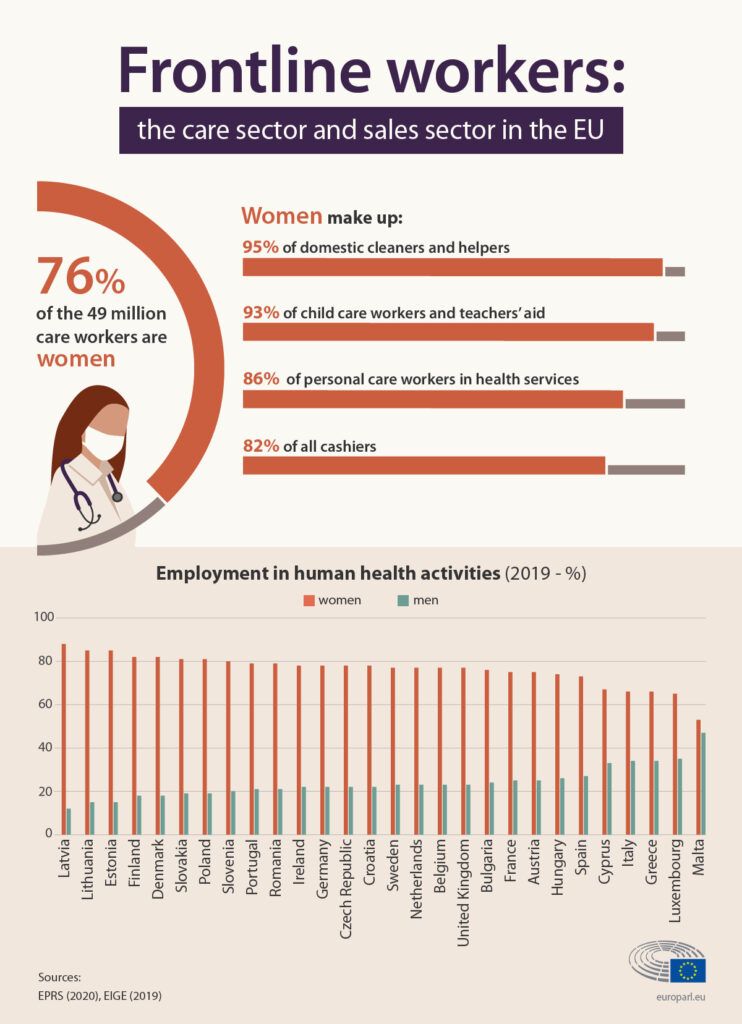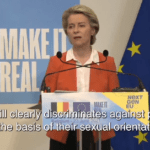Today, March 8th is International Women’s Day, officially declared in 1975 by the United Nations. The fight for gender equality is something that has existed in the EU for years, although Covid-19 has negatively affected women since most of them are included in essential services, such as healthcare, personal care and sales.
Equality between women and men must be ensured in all areas, including employment, work and pay
The report presented by UN Women has shown that the pandemic will drag 47 million more women and girls around the world below the poverty line, as the social and economic consequences of the virus have meant a great change in our lives. At the same time, it has been shown that 76% of the 49 million health workers are women, the sector most exposed to the virus, although they also represent a large percentage of the care and sales sectors, accounting for 80-90% of the total.
- Guaranteeing climate justice – adopting measures to mitigate the impact of climate change on women (2017)
- Combatting sexual harassment in the workplace, public place, political life, online and offline (2018)
- Adopting new rules on work-life balance with higher minimum standards for parental and carers’ leave (2019)
- Calling for specific reduction targets, investment, working arrangements and training to close the gender pay gap (2020)
- Calling for the eradication of female genital mutilation (2020)
- Promoting female participation in the digital economy and proposing measures to tackle the digital gender gap and encourage girls to study science, technology, engineering maths as well as ICT subjects (2021)
- Reiterating the call for countries to ratify the Istanbul Convention fighting gender-based violence (2021)
More information
European Parliament – Full Article
European Parliament – Infographic
Research by Parliament – Covid-19: The need for a gendered response
Fundamental Rights Agency of the European Union – TITLE III, Equality







Leave a Reply